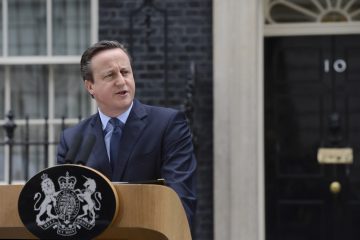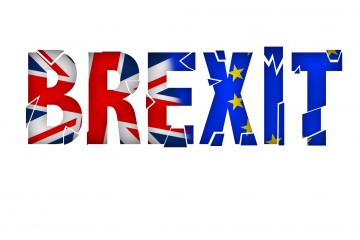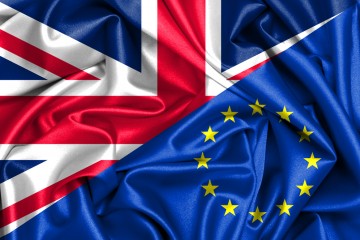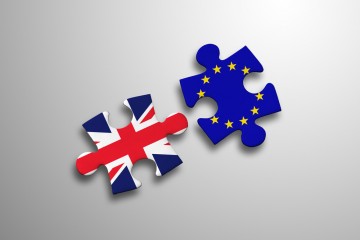
A new narrative for the EU: a neo-medieval Europe of societal networks
We have theories of integration but not of disintegration which is a problem, argues Jan Zielonka. In the early 1990s Europe experienced three great revolutions: geopolitical, economic and digital. The fall of the Berlin Wall, the single market project and the advent of the internet have changed Europe beyond recognition, but the EU has not properly adjusted to this dramatic change. Europe lost trust, imagination and sex appeal Subsequently it lost its sex appeal for both Europe’s citizens and external observers. For many decades the EU was as a model of successful integration: an efficient market with welfare protection for its citizens and ability to pacify unstable neighbors. This is history however. At present, the EU is clearly in disarray. …

Brexit referendum folly
The consequences of the Brexit referendum are bad for both Europe and Britain, regardless of the result. The EU referendum in the United Kingdom was intended as a festival of democracy, but it has proved to be an exercise in political madness. Brits pride themselves on being sensible and pragmatic people, but they embarked on a sentimental journey into the unknown. Rational arguments are being set aside while populists are having a party. The prospect of a referendum with an uncertain result has already caused a great deal of disarray, and those who count the costs of a possible Brexit should realise that major damage to Europe and the United Kingdom has already been done. A few million partisan national …

How Brexit might affect EU audio-visual media services policy-making
This brief will discuss the current issues affecting UK stakeholders in the cross-border audio-visual services sector. It is written in light of the replies to the public consultation on Directive 2010/13/EU on Audio-visual Media Services (AVMSD), the Commission’s Regulatory Fitness (REFIT) exercise, the public consultation on the EU Satellite and Cable Directive, national consultations and a possible exit of the UK from the EU. The paper also draws on anonymised responses to an online survey run by the author. The paper’s findings are considered in the context of current market trends: the increase in high definition channels, decrease in television watching (e.g. DTT, cable, satellite, IPTV) particularly amongst the younger populations, the move towards on-line and on-demand services and changes in content …

Why Conservative MPs back Brexit (or not)
Ever since the Conservatives’ surprise win of a Parliamentary majority in the 2015 general election, the EU referendum has been at the centre of public debate. There has been much speculation about how many Conservative members of parliament (MPs) would back Brexit. Now David Cameron’s renegotiation has been concluded, MPs are free to choose sides in the referendum debate. Ever since, scores of Conservative of MPs, including the Mayor of London and six Cabinet Ministers, have endorsed the Leave campaign. Other MPs have sided with the Prime Minister and the Chancellor in backing Remain. My DPhil research focuses on the position of members of parliament with regards to Europe. In this article I use my own dataset of Conservative MPs …

A letter to my British friends: for Europe’s sake, please stay
The EU might be dysfunctional but it is still Britain’s home. Help us fix it from the inside. Dear British friends, My kids and husband are British, I teach and pay taxes in this country, talk to my village neighbours everyday and love English country lanes, Scottish castles, Welsh road-signs, Cornwall’s gardens and all the bloody rest of it. As a French and Greek citizen, I won’t have a vote in this referendum and yet this is one of the most momentous decisions that will ever be taken in my name, as a European citizen living on this side of the channel. So, along with the two million other EU expats living here, and millions on the continent …

The Legal Framework: What happens if we vote for Brexit?
The EU referendum could be held as early as June so clarity is needed about what will happen in the event of a vote to leave. In this post Alan Renwick explains Article 50 of the Lisbon Treaty which sets out the procedure for leaving the EU. Under it a second in/out referendum of the type floated by Boris Johnson among others is not possible. Anybody suggesting that voters can vote to ‘leave’ safe in the knowledge that they can later change their minds is either playing with fire or manipulating voters disingenuously. 2016 looks likely to be the year in which voters get to decide whether the UK will stay in the European Union. If David Cameron secures a deal with other EU leaders …

What explains Euroscepticism in the Conservative Party?
Many believe that the EU referendum has been called only to enable David Cameron to appease the Eurosceptics within his own party. This is debatable on numerous grounds. But what is certain is the eventuality that many Conservatives, including possibly some Cabinet ministers, will be joining the campaigns to get Britain out of the EU. For over a quarter of a century the issue of Britain’s role in Europe has been one of the most significant divisions within the Parliamentary Conservative Party (PCP). The European issue has been a reliable source of problems for the party leadership over the years. It has led to many rebellions, numerous defections, the downfall of Thatcher, and partly accounts for the Conservatives’ landslide defeat …

The Brexit Campaigns: In Out, In Out, Shake It All About
The rival camps are taking shape. Organisations have been launched, slogans road tested and logos commissioned. While no one knows when the EU referendum will take place, everyone has decided it’s time to make their case. A couple of weeks in, and the similarities between the Leave and Remain camps are as as striking as the differences. Both are quick to underline their patriotism; both go out of their way to emphasise British strength. No one, not even in the ‘remain’ camp, seems particularly fond of the European Union. And – perhaps most importantly – both campaigns are profoundly divided. On the ‘leave’ side, we have Leave.EU and Vote Leave, run by Matthew Elliott of Taxpayers Alliance fame. While the …









